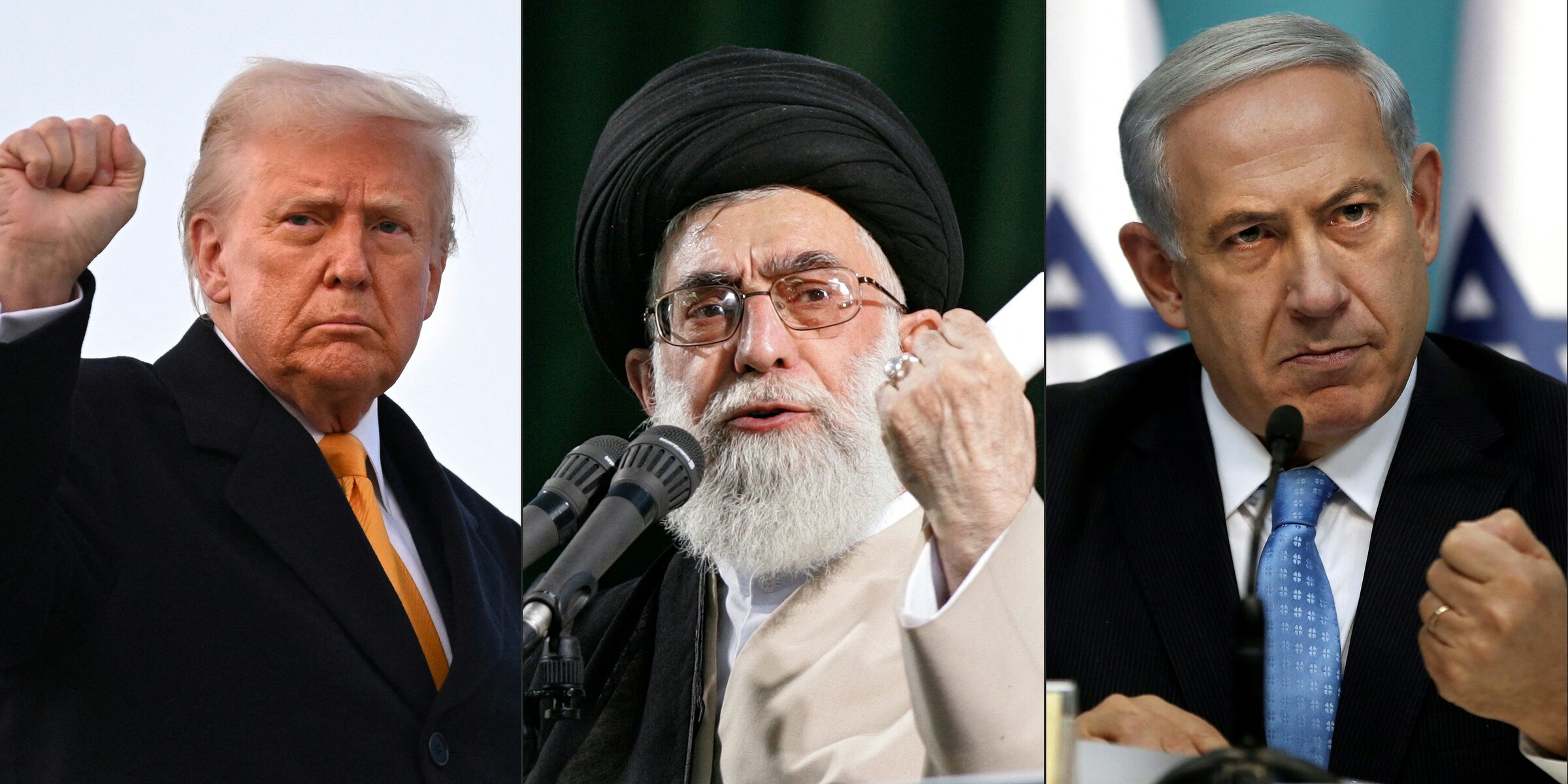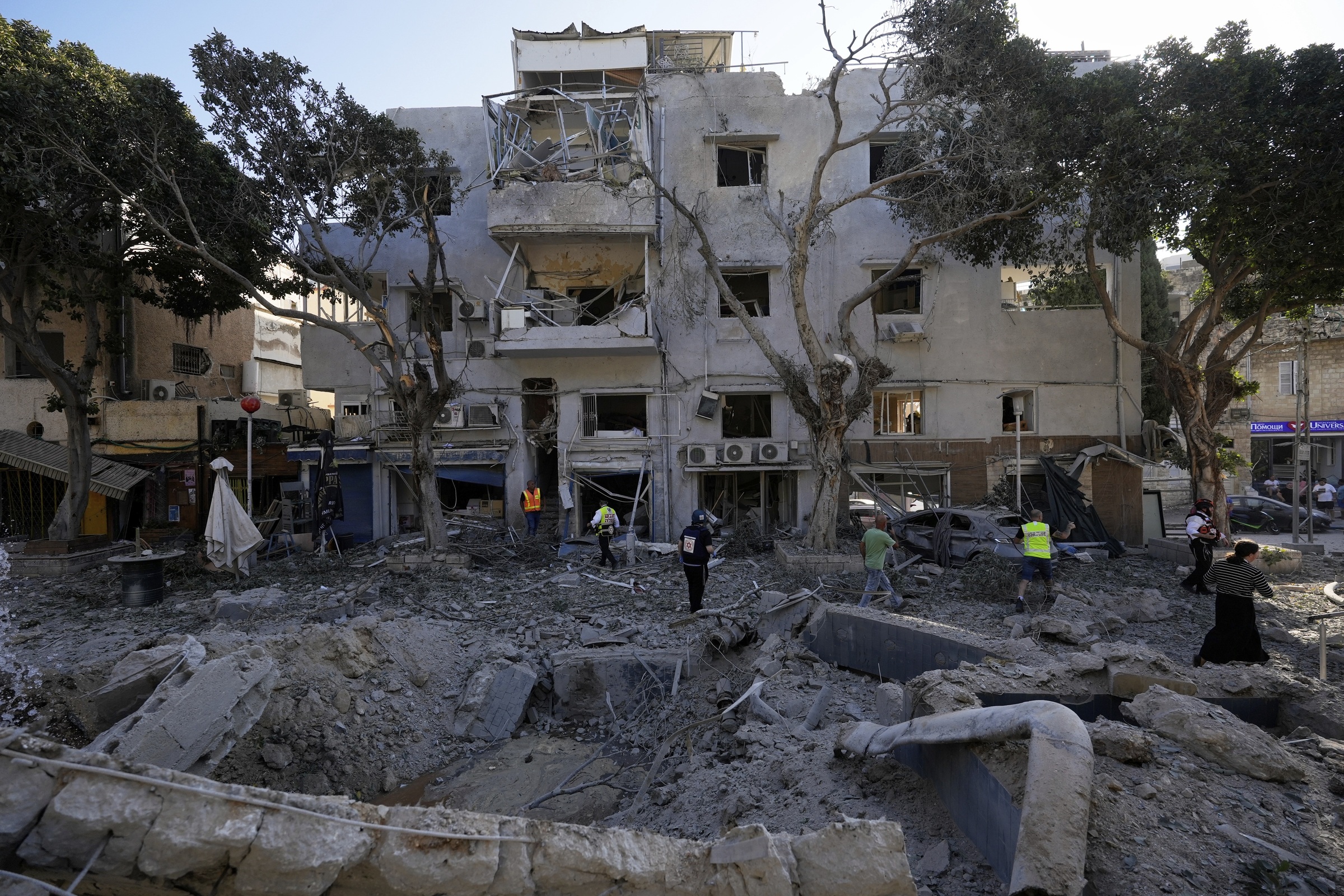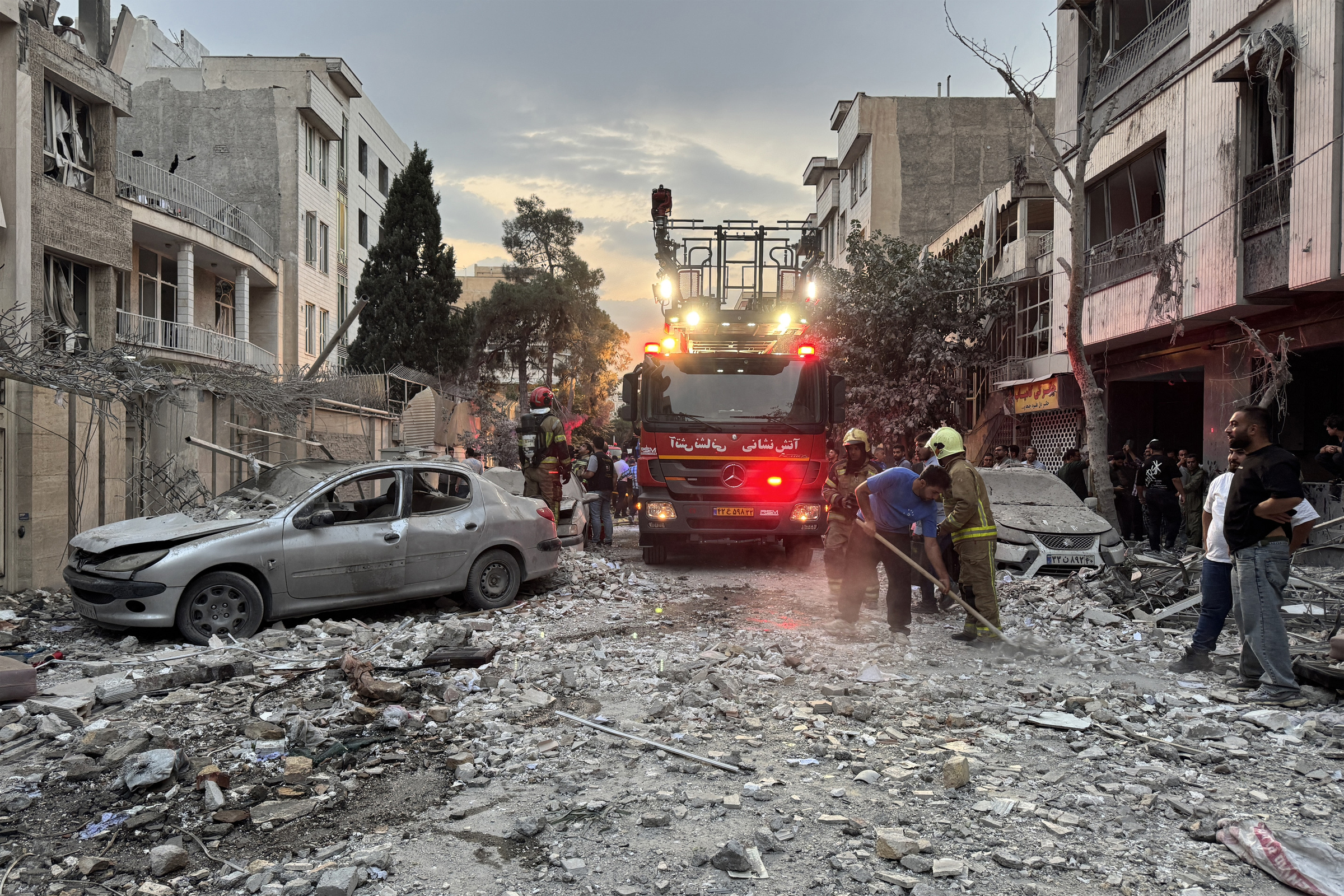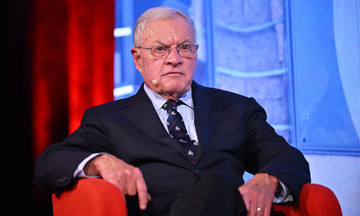On 23/6, then-US President Donald Trump announced a ceasefire agreement between Iran and Israel, ending a 12-day conflict marked by escalating tensions, including Washington's intervention with airstrikes on Tehran's nuclear facilities.
All parties involved declared victory. On 24/6, Iran's Supreme National Security Council stated that Tehran had "forced the enemy" to halt hostilities, warning that Iran remained vigilant and ready to respond to any aggression.
That same day, Prime Minister Benjamin Netanyahu declared a "historic victory" for Israel, claiming the elimination of both Iran's nuclear and missile threats. President Trump asserted that he had established peace, saving the Middle East from the brink of war.
"Each side has reason to interpret the outcome as a victory, having avoided a larger conflict with potentially dire consequences," said Ali Vaez, director of the Iran Project at the International Crisis Group in Belgium.
 |
From left: US President Donald Trump, Iranian Supreme Leader Ali Khamenei, and Israeli Prime Minister Benjamin Netanyahu. Photo: AFP |
From left: US President Donald Trump, Iranian Supreme Leader Ali Khamenei, and Israeli Prime Minister Benjamin Netanyahu. Photo: AFP
Israel and Iran have long viewed each other as sworn enemies in the Middle East. While Tehran has repeatedly called for "wiping Tel Aviv off the map," Israel considers Iran's nuclear program an existential threat and is determined to prevent its adversary from acquiring nuclear weapons. This is why Israel has always sought to neutralize Iran's nuclear program but has never directly attacked it.
On 13/6, Israel crossed a red line, launching Operation Roaring Lion, a preemptive airstrike on Iranian nuclear facilities such as Isfahan and Natanz. The operation caused significant damage to above-ground structures, killing several Iranian military commanders and nuclear scientists.
Israel has previously attacked nuclear facilities in Syria and Iraq, but on a much smaller scale. With Operation Roaring Lion, Israel demonstrated its ability to carry out a complex operation at a much greater distance, according to Al Jazeera.
Israel claimed to have overcome international skepticism about the operation's legitimacy, as not everyone agreed that Iran was developing a nuclear bomb or was about to use nuclear weapons to attack Israel.
"I have spoken with world leaders. They were very impressed by the determination and what our armed forces achieved," Netanyahu said on 18/6.
Ultimately, Israel showed its ability to persuade the US to participate in a limited military operation in the Middle East that it initiated. The US bombing of Iranian nuclear facilities demonstrated that Washington remains an ally of Tel Aviv. Prime Minister Netanyahu somewhat improved his image, giving him an advantage in the 2026 elections.
 |
Debris in Haifa, Israel, after an Iranian airstrike on 22/6. Photo: AP |
Debris in Haifa, Israel, after an Iranian airstrike on 22/6. Photo: AP
However, Israel's economy is paying the price for the 12-day conflict with Iran.
Financial Express estimated that Israel spent about 5 billion USD during the first week of fighting with Iran. The Wall Street Journal reported that Israeli air defense systems cost 10-200 million USD per day.
Naser Abdelkarim, associate professor of finance at AAUP University, USA, told Anadolu Agency that the conflict also affected Israel's economic activities, potentially costing the country up to 20 billion USD. Israel's budget deficit is expected to increase by 6%, and compensation for affected citizens will add further pressure.
Experts warn that Israel's growth could slow down, with unemployment and poverty rates rising if the conflict continues.
Similar to Tel Aviv, Tehran suffered significant human and economic losses in the exchange with its adversary. But considering the size of the territory, the devastation in Iran was much smaller than in Israel.
The 12-day conflict helped Iran demonstrate its strength and resilience. Despite facing two strong opponents at the same time, Tehran found ways to cope and prevent any major crises or disruptions within the country.
Iran launched a large number of missiles and UAVs in retaliation against Israel, targeting critical infrastructure in Tel Aviv and Haifa. Many missiles hit their targets, including some that Tehran used for the first time, demonstrating the effectiveness of their new weapons. Iran exposed weaknesses in its opponent's air defense systems, showing that Israel is not invulnerable.
Iran successfully "escalated to de-escalate" by warning in advance about retaliatory action against the US base in Qatar. This helped Tehran maintain its image without prompting deeper US intervention in the conflict.
Although its nuclear facilities were somewhat damaged, Iran seems to have moved its enriched uranium to a safe location. US officials admitted they did not know where Iran's uranium stockpile was. According to an intelligence assessment from the Pentagon, the US attack could not destroy Iran's nuclear program but only set it back a few months.
 |
The scene of an airstrike in Tehran, Iran, on the morning of 13/6. Photo: AFP |
The scene of an airstrike in Tehran, Iran, on the morning of 13/6. Photo: AFP
For the US, Washington demonstrated its willingness to take strong action against Tehran and stand by its ally Tel Aviv. The intervention may deter further Iranian aggression, at least in the short term. Following the airstrike, Washington also gained leverage in its negotiations with Tehran, aiming for an agreement on Iran's nuclear program.
US intervention in a Middle Eastern conflict carries the risk of entanglement and unpredictable political consequences. Any similar move could inflame tensions within President Trump's support base as many of his voters and allies oppose such actions. Others believe that the "hit and run" strategy allowed Trump to satisfy supporters of military action without alienating others.
Through Operation Night Hammer, President Trump demonstrated his diplomatic influence in the volatile Middle East by successfully brokering a ceasefire. However, his credibility was somewhat affected when he said he would consider military action against Iran within two weeks, but launched the airstrike just three days later.
"The world will now have less faith in statements from President Trump or diplomatic efforts involving him, as the US attacked Iran while the two sides were negotiating", commented Tehran Times, a newspaper based in the Iranian capital.
Nhu Tam (According to Al Jazeera, Tehran Times, NDTV)












